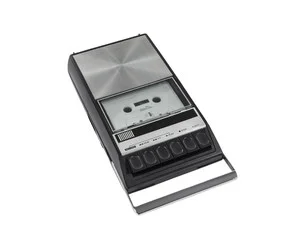Patient/Family Wants to Tape Record Meeting? New idea...
A typical question I receive during presentations and training seminars is, "What should we do if the patient/family wants to tape record the disclosure conversation?" I always tell healthcare, insurance, and legal professionals to welcome a tape recording as well as note taking by the patient/family. You should be happy for someone to memorialize your ethics in action. Moreover, I always tell clinicians that with smart phone technology they should assume that all of their conversations are being recorded.
Don't make the mistake of telling a patient/family to turn off their recorder, pack up their smart phone, or put down the pencil. Such moves will destroy any chances to recover a relationship with a patient or family. They will never trust anything you say going forward...
Now, here's a new idea to consider: When a patient or family states they want to record a meeting, you may consider asking if you can record the meeting as well. Get a copy of the conversation for your records and save yourself the misery of "Gee, did I say that right? Did the family actually discuss X?" Now, I would not lead with this request...I would only suggest you ask to record if the patient/family indicates first they want to record the meeting. Also, laws vary among states about obtaining consent to record conversations. Some states have "one party" consent laws (whereby it only requires one person to consent to taping a conversation), while some states are "two party" or require all participants to verbally consent to the tape recording. Check with your attorney.
Even if you are a "one party" state, I think it would be good form (and protection) to start a recording by saying something such as, "This is Doctor Smith, it's 2pm on Tuesday, March 5th and we are meeting with the Jones family. Is everyone OK with this conversation being recorded? Mr. Jones? Mrs. Jones? How about your son? OK, let's get started..." Patients and families can forget -- especially when they are under stress -- and even if something is "legal" you don't want a faulty memory to damage trust.
For more ideas and information on disclosure and apology, contact Sorry Works! at doug@sorryworks.net or 618-559-8168.
Sincerely,
- Doug
Doug Wojcieszak, President
Sorry Works!
618-559-8168 (direct dial)
doug@sorrryworks.net (direct e-mail)


